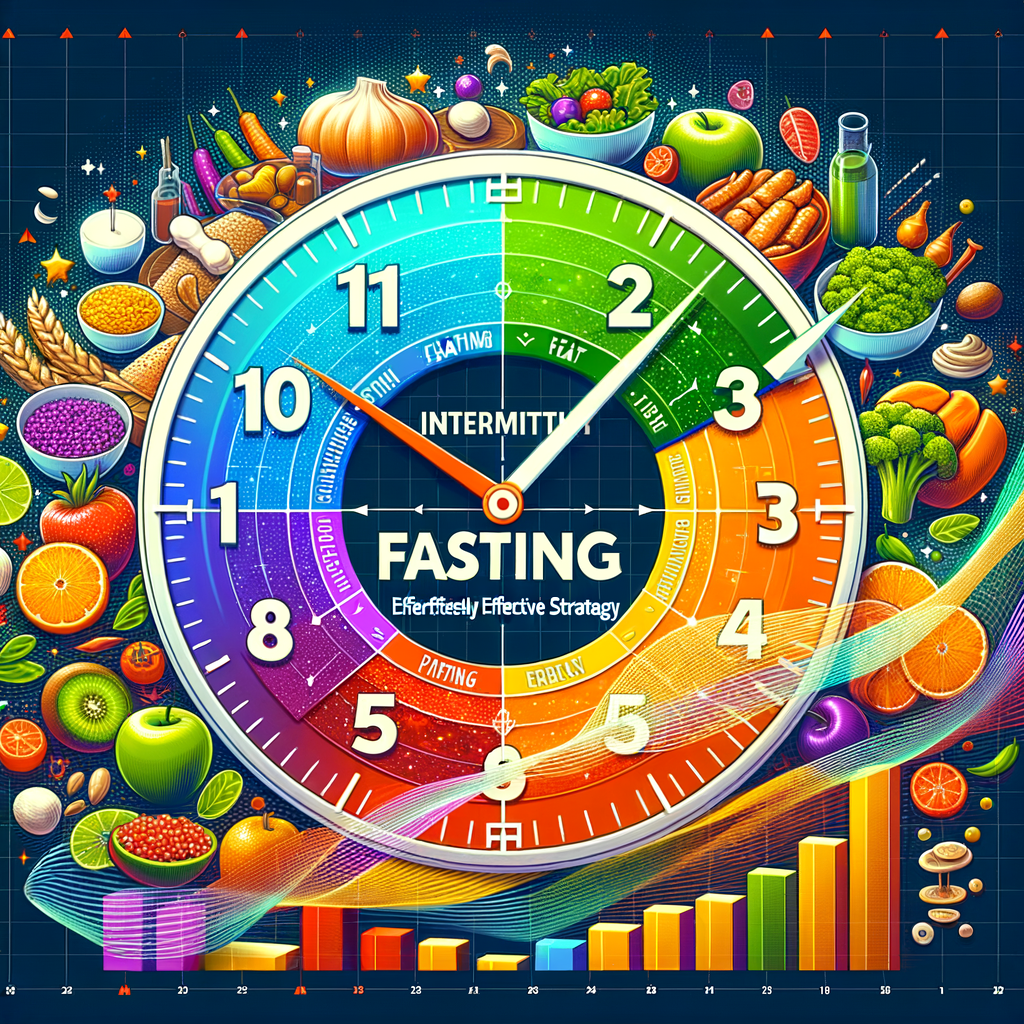
Intermittent Fasting: Effortlessly Effective Strategy
- What is Intermittent Fasting?
- Benefits of Intermittent Fasting
- Different Intermittent Fasting Methods
- Tips for Success with Intermittent Fasting
- FAQs about Intermittent Fasting
Intermittent fasting has garnered significant attention in the health and wellness space for its potential benefits to both physical and mental well-being. This eating pattern, rather than focusing on what you eat, centers around when you eat. By cycling between periods of eating and fasting, intermittent fasting offers a flexible and sustainable approach to weight management and overall health improvement.
What is Intermittent Fasting?
Intermittent fasting is not a diet but rather an eating pattern that alternates between periods of eating and fasting. The most common methods involve fasting for 16 hours per day or fasting for 24 hours once or twice a week. During the fasting periods, no calorie intake is allowed, while in the eating windows, regular, healthy meals are consumed. This cycle can be customized to suit individual preferences and lifestyle.
By giving the body a break from constant digestion and energy intake, intermittent fasting allows it to tap into stored fat for fuel, leading to potential weight loss. Additionally, fasting periods trigger autophagy, a process where the body cleans out damaged cells and regenerates new ones, which may have anti-aging effects.
Benefits of Intermittent Fasting
1. Weight Loss: Intermittent fasting can help control calorie intake and promote weight loss by creating a calorie deficit.
2. Improved Insulin Sensitivity: Fasting periods can lower insulin levels, leading to improved insulin sensitivity, which is beneficial for those at risk of type 2 diabetes.
3. Heart Health: Studies have shown that intermittent fasting could reduce risk factors for heart disease like cholesterol levels, blood pressure, and inflammation markers.
4. Enhanced brain function: Fasting may increase the production of brain-derived neurotrophic factor (BDNF), a protein that supports the growth and protection of neurons, potentially enhancing cognitive function.
5. Longevity: Some research suggests that intermittent fasting may help extend lifespan by promoting cellular repair and longevity pathways.
Different Intermittent Fasting Methods
1. 16/8 Method: This method involves fasting for 16 hours and restricting eating to an 8-hour window each day.
2. 5:2 Diet: With the 5:2 approach, individuals eat normally for five days a week and restrict calorie intake to around 500-600 calories on the other two non-consecutive days.
3. Eat-Stop-Eat: In this method, fasting is done for a full 24 hours once or twice a week, with no restrictions on eating on the non-fasting days.
Tips for Success with Intermittent Fasting
1. Stay Hydrated: Drink plenty of water during fasting periods to stay hydrated and curb hunger.
2. Choose Nutrient-Dense Foods: Focus on whole, nutrient-dense foods during eating windows to support overall health.
3. Listen to Your Body: Pay attention to hunger cues and adjust fasting periods if needed to ensure sustainability.
4. Start Slow: If new to intermittent fasting, ease into it by gradually increasing fasting periods over time.
5. Combine with Exercise: Incorporating regular physical activity can enhance the benefits of intermittent fasting.
FAQs about Intermittent Fasting
1. Can I Drink Coffee or Tea during the Fasting Period?
– Yes, as long as they are consumed without added sugar or cream.
2. Will Intermittent Fasting Slow Down My Metabolism?
– No, research suggests that intermittent fasting may have metabolic benefits.
3. Is Intermittent Fasting Safe for Everyone?
– It is advisable to consult with a healthcare provider before starting intermittent fasting, especially for individuals with medical conditions.
4. Can I Exercise While Fasting?
– Light to moderate exercise is generally safe during fasting periods, but intense workouts may require adjustments to the fasting schedule.
5. How Long Until I See Results with Intermittent Fasting?
– Results vary depending on individual factors, but some may notice changes within a few weeks of consistent fasting.
6. Is Intermittent Fasting Suitable for Pregnant Women?
– Pregnant or breastfeeding women should avoid intermittent fasting to ensure adequate nutrient intake for both themselves and their baby.
7. What Breakfast Foods Are Ideal for Intermittent Fasting?
– Nutrient-dense options like eggs, yogurt, and oatmeal can provide sustained energy during the fasting window.
8. Can Intermittent Fasting Help with Emotional Eating?
– Intermittent fasting may promote mindfulness around eating habits, potentially assisting with emotional eating challenges.
9. How Does Intermittent Fasting Impact Muscle Growth?
– When combined with resistance training, intermittent fasting can support muscle retention and growth.
10. Are There Any Side Effects of Intermittent Fasting?
– Potential side effects may include hunger, irritability, or decreased energy levels initially, but these often subside as the body adjusts to the new eating pattern.
In conclusion, intermittent fasting offers a viable and straightforward strategy for individuals looking to improve their health, manage their weight, and potentially extend their lifespan. By understanding the various methods, benefits, and tips for success, anyone can effortlessly incorporate intermittent fasting into their lifestyle and reap the numerous rewards it has to offer. Whether for weight management, metabolic health, or cognitive function, intermittent fasting presents a versatile and effective approach to enhancing overall well-being.
References:
1. Johnston, C. S., et al. (2016). Ketogenic low-carbohydrate diets have no metabolic advantage over nonketogenic low-carbohydrate diets. The American Journal of Clinical Nutrition, 83(5), 1055-1061. Link
2. Mattson, M. P., et al. (2017). Meal frequency and timing in health and disease. Proceedings of the National Academy of Sciences, 111(47), 16647-16653. Link

